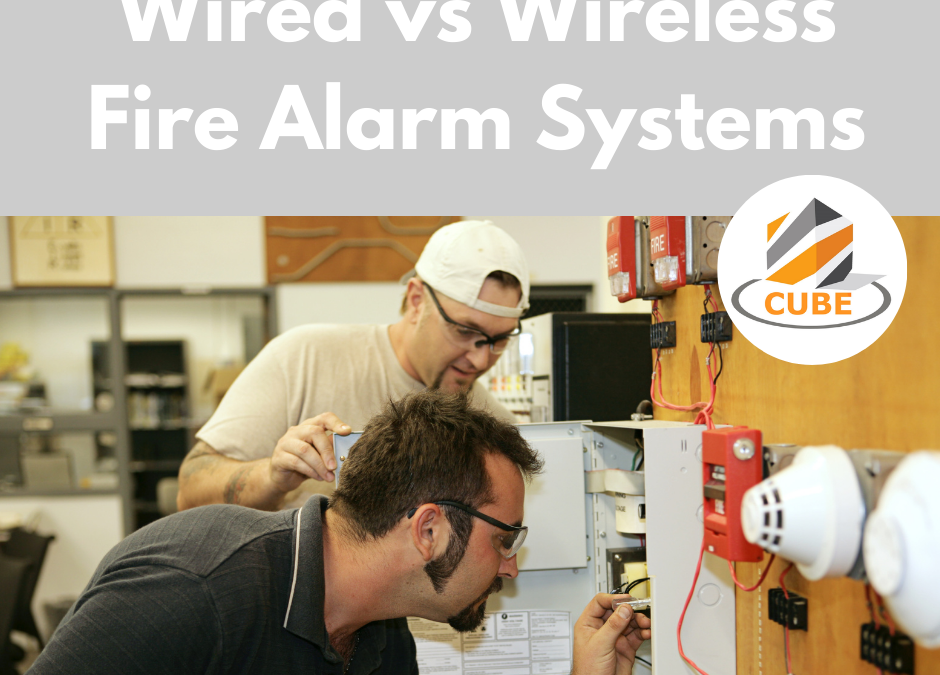Struggling to decide which fire alarm system would be best to use as a property owner, responsible person, and/or installer? Well, both hardwired and wireless systems are fully compliant. Therefore, we have put together a different range of factors that will help make the decision for you just that little bit easier.
First up – Equipment Costs.
Now although a hardwired fire alarm panel is fairly comparable in terms of pricing with its wireless counterpart, the wireless devices themselves tend to be significantly more expensive.
Even just taking a look at a typical fire alarm system which consists of a 4 zone panel, 8 smoke detectors with integral sounder, 1 heat detector with internal sounder, and 4 manual call points, we can safely say that wireless is about 4.3 times more expensive.
Now onto one of the most important factors of the alarm systems – The Installation Setup.
If there is a brand new build and there is no problem with running cables, then choosing to install a hardwired one is most likely to be favoured over a more expensive wireless system.
However, implementing installations don’to a building that is already built is far more difficult. When considering installing a hard-wired system in this instance, how the cable will be run is very important to ensure a successful installation setup. Floorboards may need to be lifted due to cables being run discreetly and even containment such as trunking. Therefore, the labour time that will go into this alongside the cost of the cable and containment will ultimately make a wireless system installation much more cost-effective. And although the wireless system itself may cost more than the hard-wired system to buy, the installation of it will be where you save the most money with wireless.
All of the wireless devices will be completely cable-free meaning the location you can choose for your system will be much broader than if it were wired. And it is only the control panels and boosters that will require cabling due to the need for a mains supply.
Also, the average installation time is estimated at between 4-6 days for the hardwired and only a single day for the wireless equivalent which speaks volumes.
While this is a great benefit pro wireless, in terms of Reliability, hard-wired comes out on top and this is why.
Many concerns tend to pop up from customers when installing wireless. Things such as wireless coverage and battery concerns. In reality, if a comprehensive site survey has been conducted before installation, then you will find the wireless system will rarely have such issues.
Without this survey, however, you have no real foreground of whether these issues may occur. In the worst-case scenario, the wireless devices just may not have sufficient coverage available to communicate with the system, and even sometimes where they do, the signal levels may mean the devices have to work extra hard to maintain that communication which will inevitably affect battery life.
Hardwired systems, however, tend to be much more reliable due to their solid hardware that is not easily damaged.
Now the final factor that should be taken into consideration is Flexibility.
If you do choose to go with a hard-wired system, all cables will need to be wired to the exact location where the devices will be fitted. Wireless devices, however, can be freely cited where they are required without having to worry about any cable implications. As well as this, wireless devices have that added benefit of being able to be easily removed and relocated. That way you can disconnect and refit into a new premise if need be.
We would love to hear from you!
Did this help you? Would you like to know more about security systems and the growing security industry? We love to hear feedback from our readers. Make sure to contact us through the link down below:

